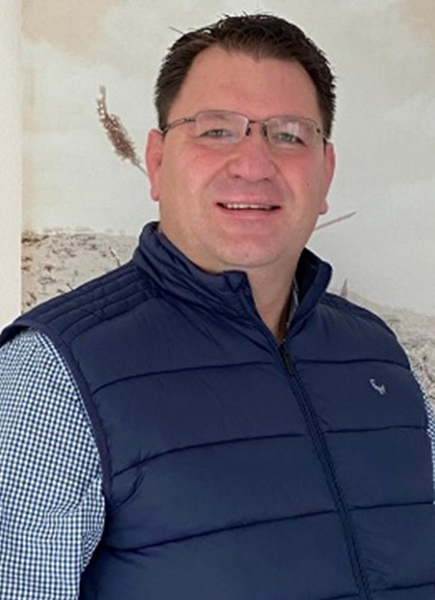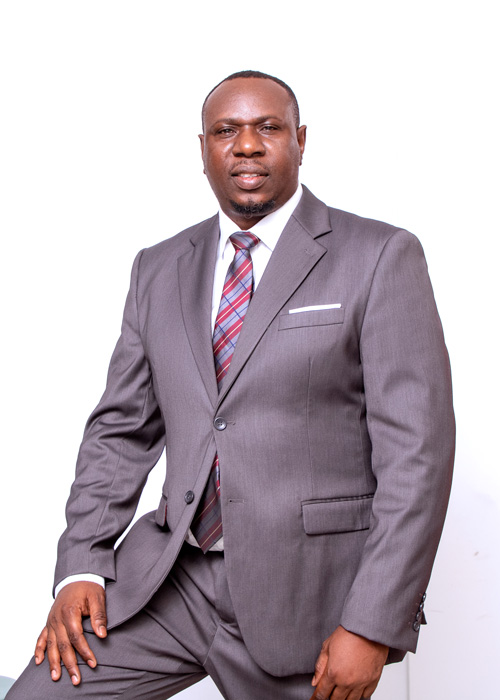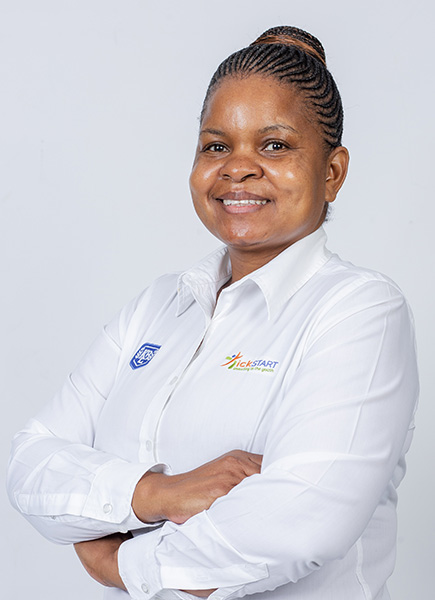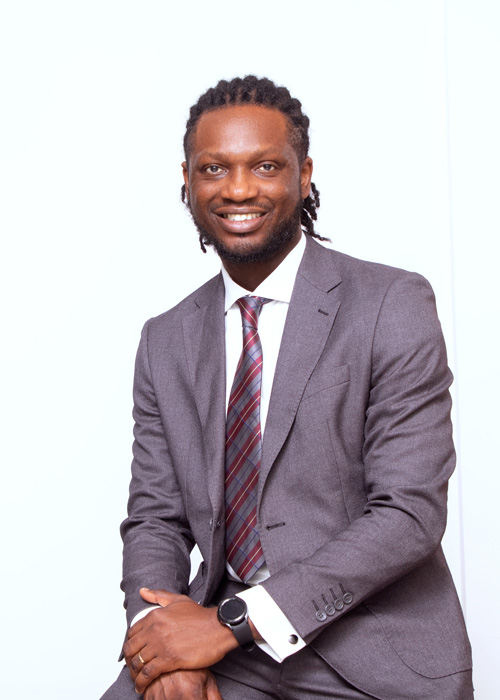

He started his professional career at The South African Breweries in 2001 and is now a proud employee of AB-InBev. During his time working in the beer industry, he progressed from BDR level to Country Director. Additionally, during this period, he achieved several outstanding results.
Two important principles that Dederik lives by are accountability and responsibility, which he believes pave the way for transparency, creativity, and true engagement, culminating in diverse teams that take ownership of every outcome.
Dederik is looking forward to his tenure in Ghana, and particularly at Accra Brewery PLC, making a difference in people’s lives and delivering extraordinary results to create a future with more cheers.
Dederik’s favourite ABL brand is Club Lager Beer because, apart from being crisp and refreshing, it is the best beer brewed in Ghana.


Eng. Siftan Yerimond is our Plant Manager and Head of Supply
He holds a BSC degree in Mechanical Engineering., and a professional mechanical engineer with 17+ years’ experience in the engineering field.
He has been registered by the Professional Engineers Board of Tanzania with a strong background in industrial maintenance and food and beverage in the FMCG industry.
Prior to joining ABL, Eng. Siftan worked for ABInBev in Tanzania and Uganda Breweries for more than eleven years. He is a results-oriented, agile, resilient, curious, and dedicated engineer with excellent maintenance execution experience, process management, production management, and manufacturing industries at large.
Siftan’s favourite ABL brand is Club Lager beer.

Maxwell is our Country Procurement Lead. In this role, he also supports our BU West strategic sustainability projects.
He holds a Master’s Degree in Accounting and Taxation from the Ghana Institute of Management and Public Administration and a Bachelor of Commerce (Bcom) from the University of Cape Coast. He is a member of the Institute of Chartered Accountants, Ghana (ICA, Ghana) and the Chartered Institute of Taxation, Ghana (CIT, Ghana)
Maxwell joined ABL in 2013 as the Accounts Payable Manager and was promoted to Country Tax Manager in 2017. He assumed his current role in November 2019. Prior to joining ABL he worked as a Principal Internal Auditor at Ghana Highways Authority.
1Maxwell’s favorite ABL brand is Club because it is REFERESHING

Kefilwe Tabona is our Country Finance Lead
Kefilwe is a qualified member of the Association of Accounting Technicians (MAAT) and is currently pursuing the Association of Chartered Certified Accountants (ACCA) qualification. As a passionate strategist and business executive, Kefilwe has also widened her knowledge through various courses in People Management, Financial Management and Reporting, Compliance, Digital Transformation and Operational Effectiveness amongst others. Her career spans more than 24 years of varied experience in financial management, business leadership, and corporate strategy.
Earlier in her career, Kefilwe held varying positions such as Cost Accountant, Management Accountant, Business Partner (Logistics and Marketing), and recently Commercial Performance Planning Manager responsible for Botswana and Namibia. She is currently based in Gaborone, heading Finance functions for Botswana and Ghana.
Kefilwe’s favourite ABL brand is Eagle Extra because it refreshes her after a long day.

Vanessa Kavi is our Country Marketing Lead.
She holds a degree in Mathematics from the Kwame Nkrumah University of Science and Technology, Kumasi.
Prior to joining ABL, Vanessa was the Head of Marketing for Godrej Consumer Products (Weave Ghana Limited). She also worked at PZ Cussons and Unilever Ghana and South Africa, where she handled different brand portfolios across different categories, spanning personal care, home care, and food and beverages. She has a decade of diverse Marketing and Brand Management experience in the FMCG industry.

Priscilla is a senior certified HR professional with over a decade of work experience spanning across customer service and HR.
Holds a master’s degree in business Administration and a Bachelor’s degree in Management and Computer Studies.
Priscilla started her HR career with Unilever Ghana, then Tigo Ghana, where she developed her skills to interface with customers as a customer service representative, Dangote Cement Ghana as a senior HRO, and Transmed Ghana as HR Manager.
Priscilla’s favourite ABL brand is Club Shandy because it quenches her thirst any day!

He holds a degree in Industrial Production Engineering from Nnamdi Azikiwe University, Awka, in Anambra State, Nigeria.
Samuel joined ABL in October 2022; before that, he was the Business Unit Warehouse Manager for West Africa under International Breweries PLC Nigeria. Samuel has spent 10 years in Logistics and Supply Chain Management covering all aspects of the function.
Samuel believes there is vast opportunity in the Ghana market and is dedicated to capturing it.
Samuel enjoys ice-cold Club Lager beer; he often says, “This is the best liquid in West Africa”.

Solomon Yaw Ayiah is our Country Legal & Corporate Affairs Lead.
He holds LLB from GIMPA, Masters in Development Communications from GIJ, B.A in Communications Studies from UG and Diploma in Journalism from GIJ
He joined us from GHACEM Limited were he worked as the Strategy and Corporate Affairs Head. He has also worked as the Marketing Manager, World Vision International, Communications Manager for ABSA (formerly Barclays Bank Ghana Limited), and Assistant Editor of Ghana Television.
